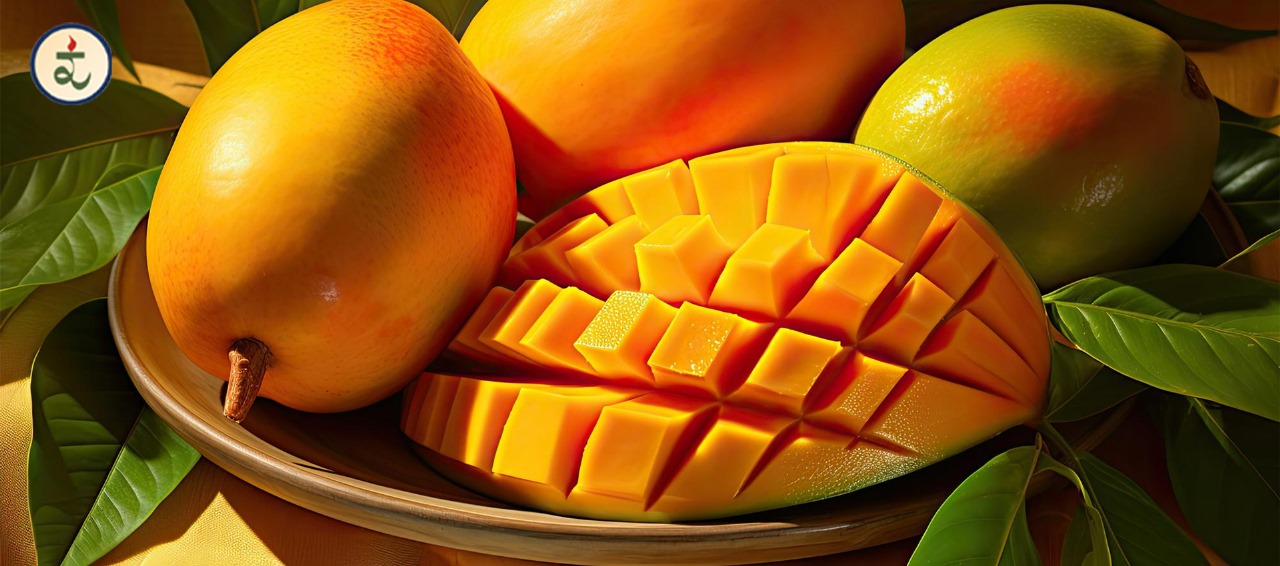
It’s a hot summer day, and you grab your hands on the cool, sweet, and tropical taste of a ripe mango. But wait, are you aware whether it is chemically grown or a natural delight?
Now, you may ask, “How can we differentiate between a naturally grown and chemically induced mango?” To answer, let’s peel back the layers of this mango mania debate and uncover the truth of your sweet taste!
First things first, let’s talk about why mangoes have captured the hearts (and taste buds) of people worldwide. Known as the “King of Fruits,” mangoes boast a rich, vibrant flavour that transports you to sun-kissed orchards with just one bite. From their irresistible sweetness to their heavenly aroma, mangoes are a true summer delight that many crave year-round. They have many health benefits, including vitamin C, fibre, vitamin A, and antioxidants.
In today’s fast-paced world, where demand often outstrips supply, some farmers resort to chemical fertilisers and pesticides to maximise their yields. While these methods may lead to larger, visually appealing fruits, they come at a cost – both to your health and the environment.
In recent years, there has been a widespread usage of a harmful chemical known as Calcium Carbide in mango ripening, which poses a significant risk to public health. It is also used to produce acetylene gas, which is utilised for welding and cutting. Calcium carbide is a highly reactive chemical that emits acetylene gas when it contacts water. It has recently gained popularity as an artificial ripening agent for fruits like mangoes. The chemical is applied to the fruit during transit, and the acetylene gas it emits is intended to hasten the ripening process. However, using calcium carbide to ripen mangoes is extremely risky and can have significant health implications.
So, how can we know that our favourite fruit is safe and organic to consume?
According to experts, the press and smell test is usually practical when one does not know where the mango came from. Mangoes should be round and bean-shaped, so choose plump and rounder ones, particularly around the stem. When sniffing, one should detect sweetness. Furthermore, the surface of artificially ripened mangoes has a variety of yellow and green colour spots. Still, naturally ripened mangoes would have a homogeneous blend of green and yellow.
Also, you can try the floating test! Put the mangoes in a bucket of water; if they float, then it’s probably harvested artificially. Otherwise, the naturally ripened ones will sink. Moreover, the chemically grown mangoes may have less or no juice dripping out.
According to the Food Safety and Standards Authority of India (FSSAI):
● Buy fruits and vegetables from reputable sellers/stores/dealers who say they are not ripened with harmful or banned chemicals.
● Before eating, thoroughly wash the fruits in running potable water.
● Avoid fruits with black spots on the skin. They are more prone to ripen due to the acetylene gas created by calcium carbide.
Rootz Organics believes in utilising nature’s potential to provide delicious, nutritional mangoes that excite the senses while minimising environmental impact. Our farmers practise sustainable agriculture, feeding mango trees with organic fertilisers and using natural insect control methods. We prioritise soil health and biodiversity to guarantee that every mango on your plate is full of flavour and free of dangerous chemicals. Our mangoes come from Ratnagiri, naturally ripened, sweet feels awesome once you have it ensuring the integrity of both the fruit and the habitat in which it flourishes.
Together, let’s celebrate the essence of nature’s bounty and savour every mango moment guilt-free!
So, what are you waiting for? Dive into a world of flavour, freshness, and sustainability with Rootz Organics. Let’s make mango mania a celebration of all things natural!
Remember, when life gives you mangoes, make sure they’re organic!
Understanding Chemical-Free Eating: What It Means for Your Daily Grocery Choices
February 27th, 2026Product Spotlight: Cold-Pressed Oils – Health Benefits & Usage
February 23rd, 2026When Gluten Became the Problem — And Ancient Grains Became the Answer
February 6th, 2026Cold Pressed Olive Oil vs Refined Oils: Why UAE Homes Are Making the Switch
January 30th, 2026